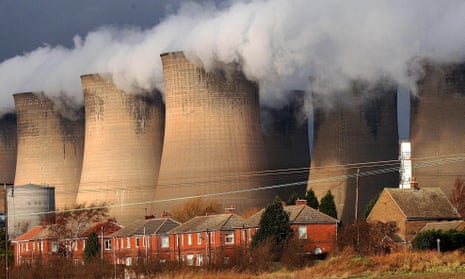Britain needs to reach, by no later than 2050, net zero emissions of carbon dioxide and other greenhouse gases. This means any greenhouse gases we release must be balanced by the removal of an equivalent amount from the atmosphere.
The 2050 deadline represents our fair share of international responsibility for implementing the Paris agreement on climate change and meeting its goal of holding the rise in average global temperature to well below 2C – and pursuing best efforts to limit warming to no more than 1.5C.
Until global emissions reach net zero, average temperature will continue to rise. It is already about 1C above its pre-industrial level, and is fundamentally altering the Earth’s climate. Extreme weather events – heavy rainfalls and heatwaves – have occurred, and sea levels have risen.
The Intergovernmental Panel on Climate Change has warned of very serious consequences if average temperature rises by more than 1.5C, with many millions more people threatened by food and water shortages, for instance. Worse, the higher that temperatures climb, the greater is the prospect of major catastrophic events occurring such as polar ice sheets in west Antarctica and Greenland being destabilised, leading to an inevitable sea-level rise of several metres.
The 2008 Climate Change Act commits the UK to reducing its annual emissions by at least 80% by 2050. But that was based on the assumption that global average temperature would rise by up to 2C. Since then scientific evidence has emerged to suggest that this level of global warming would be too dangerous. The UK is leading by example and has already reduced its annual emissions by more than 43% since 1990, a period during which our economy has grown more than 75%, proving that tackling climate change does not mean financial ruin. But this has mainly been achieved by phasing out coal as a source of electricity.
To reach net zero emissions by 2050, the UK needs strong action across the whole economy. We have many of the technologies we need already, and we will need to make more use of nuclear and renewable power. But it is not yet clear how we will, for instance, stop emissions from agriculture, including from livestock.
We will need to make significant investments, but the returns will be huge, not just in terms of avoided climate change impacts, but also new opportunities for innovative UK businesses serving the growing global demand for zero-emissions technologies. A zero-emissions economy will be cleaner, smarter and more efficient, ensuring prosperity and wellbeing for current and future generations.
Bob Ward is policy and communications director at the ESRC Centre for Climate Change Economics and Policy at the London School of Economics and Political Science
